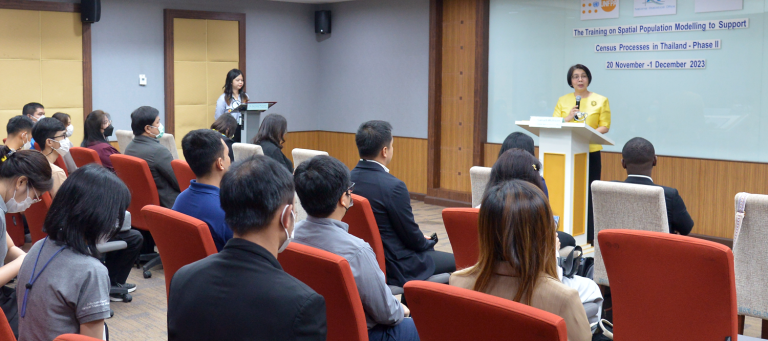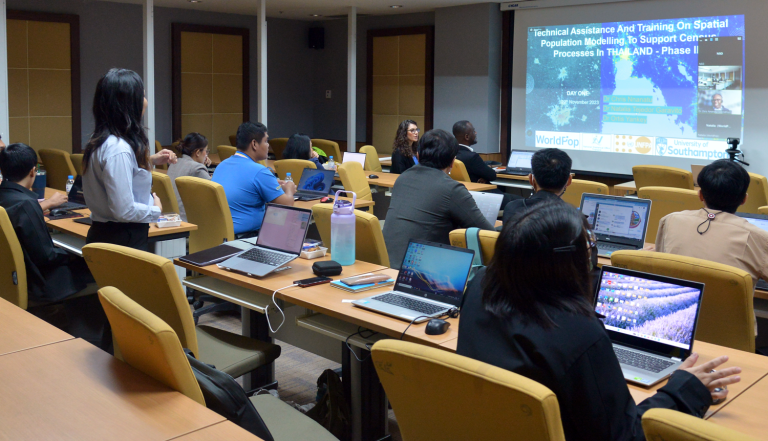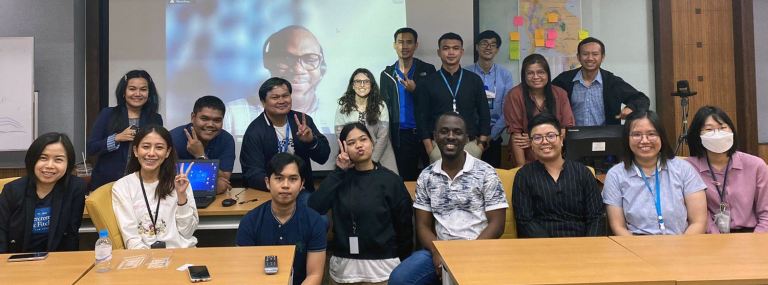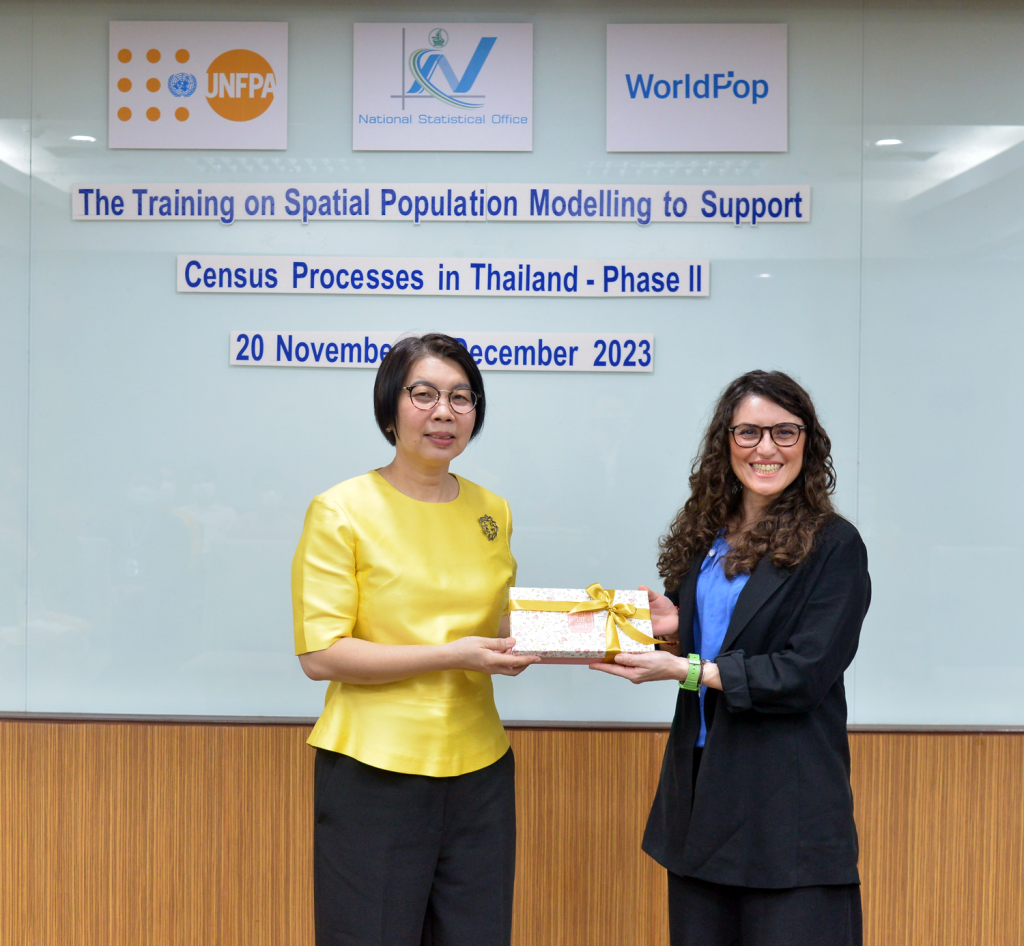Earlier this month the Thailand National Statistical Office (TNSO) concluded the second phase of innovative WorldPop training in spatial population modelling. Organised by the United Nations Population Fund (UNFPA) Thailand to help improve the efficiency and accuracy of census processes in the country more than 25 participants from the TSNO, academia, and the UNFPA joined the 2-week workshop run by Senior Research Fellow Dr Chris Nnanatu, Principal Enterprise Fellow Dr Natalia Tejedor Garavito and Research Fellow Dr Ortis Yankey.
The workshop was a follow-up to training provided by WorldPop last year and included further collaboration with TSNO on their spatial population effort. This year the focus was on spatial population modelling estimation methods using annual household survey data to support updated national sampling frame construction for the whole country. There was also an emphasis on spatial statistical modelling methods to estimate small area population counts in gated communities and high-rise buildings in the Thai capital, Bangkok.

The inaugural address was given by TSNO Director Dr Piyanuch Wuttisorn who stressed the importance of integrating spatial population modelling techniques into the census processes to generate more precise and reliable demographic data. Following Dr Wuttisorn, Sirilak Chiangwong, Head of UNFPA Thailand, also praised the collaborative effort between the TNSO, WorldPop, and UNFPA in promoting population mapping efforts to support next year’s nationwide census.

The first week of the workshop focused on a series of hands-on training sessions using the open-source geographic information system application QGIS for geospatial data preparation and analysis, and the statistical computing language R for spatial data wrangling, manipulation, and data visualisation. Dr Garavito led training in GIS for geospatial covariate preparation and spatial data visualisations using QGIS – a crucial aspect of population modelling – and Dr Yankey guided participants through R programming. Participants practiced using real-world TSNO data and engaged in discussions and collaborative exercises which fostered a dynamic learning environment. The practical applications session bridged the gap between theory and implementation, and equipped participants with the skills needed to navigate the challenges of spatial population modelling.
Led by Dr Nnanatu, the second week concentrated on practical statistical implementations of population modelling. During these sessions, the theoretical foundations for population modelling were outlined as well as methods to fit and predict population models using surveyed data combined with geospatial covariates. Practical demonstrations and case studies provided participants with tangible examples of how to implement population models using TNSO datasets.

As the workshop entered its final day, participants were tasked with co-developing and co-producing a comprehensive spatial population model for a designated region in Thailand. Participants shared insights into the knowledge they had gained and discussed further collaborative efforts between the TNSO and WorldPop, as they produced population estimates for the entire country and for high-rise buildings and gated communities in Bangkok.



